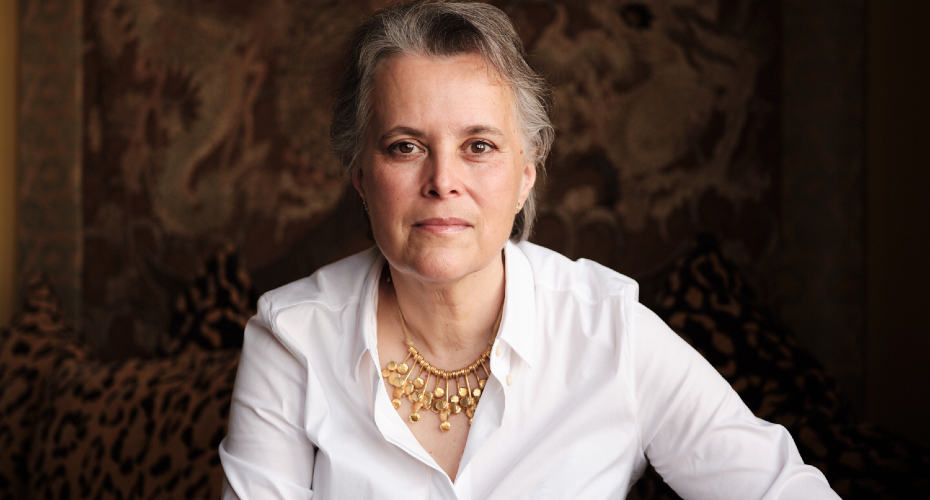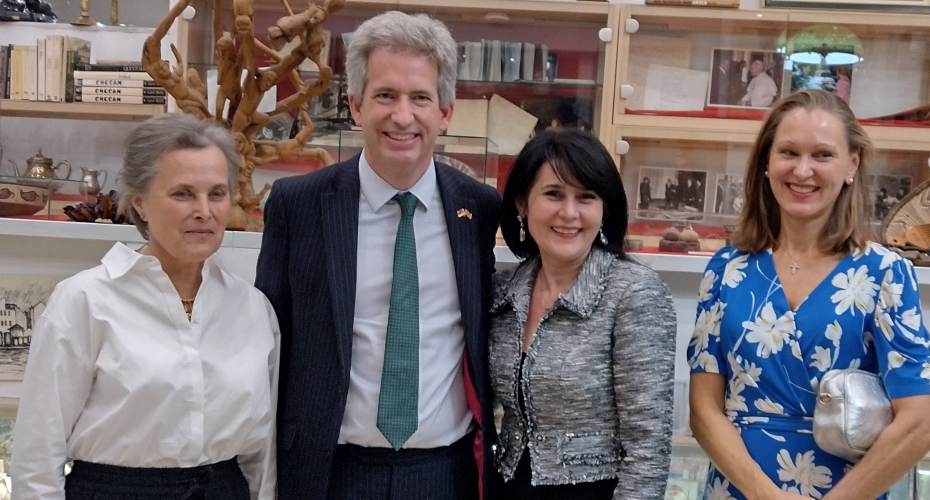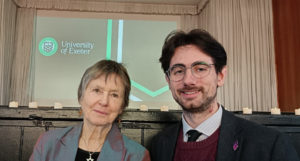Novelist and poet receives two international awards in recognition of her career

An acclaimed novelist, poet and broadcaster whose books have been translated into more than 20 languages has been awarded two international literary prizes in recognition of her career.
Professor Vesna Goldsworthy received the Milovan Vidakovic Prize – one of East and Central Europe’s preeminent literary accolades – and the Luna Virino, for international women’s writing, at ceremonies in Serbia recently.
A Professor of English and Creative Writing at the University of Exeter, Prof Goldsworthy was honoured for her remarkable body of work, such as her critically acclaimed 2023 novel Iron Curtain, which was one of The New Yorker’s Best Books of 2023, and The Times’ Best Books of 2022.
In winning the Milovan Vidakovic Prize, Professor Goldsworthy becomes its first female laureate since its inception in 2008, as well as the first British winner.
“I am one of those writers that are sometimes described as transnational,” she said. “I am British and Serbian, but, since I write in English, I don’t qualify for Serbian literary prizes. On the other hand, the few major international prizes that exist there are given for the body of one’s work. So, my first thought was, I must be a proper, grown-up writer now!”
The Milovan Vidakovic Prize, named after one of Serbia’s most important writers of the 19th century, is awarded by the city of Novi Sad on the opening night of its Prose Festival. Past winners have included writers from Europe, the Middle East and South America, three of whom, Mario Vargas Llosa, Orhan Pamuk and Peter Handke, were also recipients of the Nobel Prize.
After attending the ceremony, Professor Goldsworthy was taken by the organisers to visit a local grammar school to talk to the children.
“They were very impressive,” she said. “They had read my books and came very well prepared to grill me! But they also asked about life in the UK, my students at Exeter, even my favourite football team.”
Awarded by fashion house LUNA together with the Adligat Book Museum, and with the support of the Association of Writers of Serbia, the Luna Virino prize was launched last year to recognise women whose writing is pushing boundaries. Its inaugural winner was American novelist Téa Obreht.
Thanks to the timing of the events, Professor Goldsworthy was also able to attend the ceremony in Belgrade, where she met Edward Fergusson, HM Ambassador in Serbia – and an Honorary Fellow of the University’s Strategy and Security Institute.

She said: “The ceremony was stunning: the beautiful book museum, several TV crews recording it all, a great audience, including the UK ambassador and his wife. It isn’t easy to be on stage, and filmed, while people make long speeches praising your work, but I don’t think I am entitled to complain. There was a lot of media interest because of this double win.”
During the formative years of her writing career, when she was living in the country then known as Yugoslavia, Professor Goldsworthy wrote and published poetry – and was once invited to read one of her sonnets to 30,000 people inside a football stadium. She moved to the UK in 1986, and after working in publishing, joined the BBC’s World Service, where she produced and broadcasted in both English and Serbian for a decade.
In 2000, Professor Goldsworthy moved into academia, and she joined Exeter in 2017 from the University of East Anglia. By that stage, she had already published her hugely-acclaimed first novel, Gorsky, in 2015, and her 2005 memoir, Chernobyl Strawberries – which was serialised in The Times. Her second novel, Monsieur Ka, followed in 2018.
“It almost seems that prizes are like buses – you wait for a long time and then two come along at once,” she said. “In this case, two very different international prizes in the same week, awarded by two juries who had no knowledge of each other’s work. There are no shortlists, so I had no idea that I was even being considered.”



